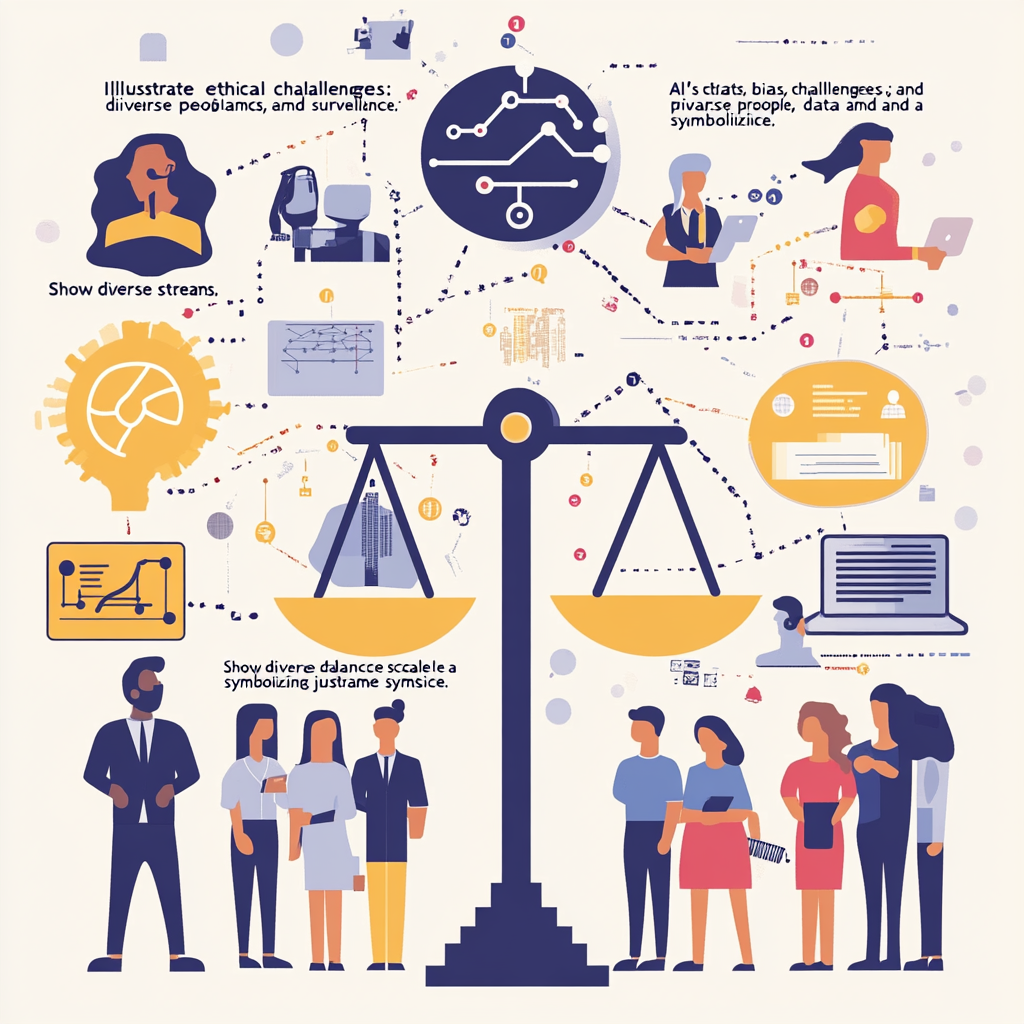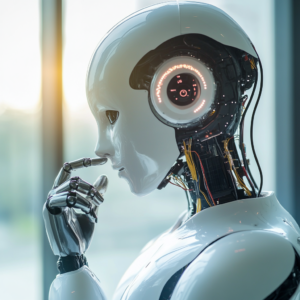
“Navigating Ethical Challenges: The Hidden Risks of Artificial Intelligence”
The Enigmatic Shadows of AI: A Glimpse into Its Risks and Ethical Quandaries
Artificial Intelligence (AI) is like the cool kid at school: the brilliant one who knows how to ace exams, plays a mean game of chess, and can even whip up a symphony on the piano. Yet, lurking behind its charming façade are some not-so-pleasant secrets that we should be chatting about over coffee—or perhaps, over a cup of that aforementioned tea we discussed. Buckle up, because we're about to take a deep dive into the murky waters where innovation meets ethics, revealing risks and complex dilemmas that, frankly, can sometimes feel just a bit scary.
So, what exactly are we talking about here? Let's start with unintentional ethical issues. You see, AI can be a bit like that well-meaning friend who, despite their best intentions, sometimes really knows how to mess things up. One of the biggest ‘oops’ moments with AI comes from bias and discrimination. You'd think that a machine, devoid of human emotions and prejudices, would treat everyone fairly, right? Think again! AI systems often pick up the biases embedded in the data they consume. It's like teaching a child to play fair while you’ve also taught them, in secret, that some people are better than others. Take facial recognition, for instance. These systems can be embarrassingly bad at identifying individuals of color, effectively making the incredibly vast and diverse tapestry of humanity into a confusing blur for computers. And language tools? Well, they can easily perpetuate stereotypes—like a broken record that keeps playing the same old tunes.
Then we have data security and privacy, the ultimate party-poopers. When AI starts gobbling up personal and sensitive data, things can quickly get out of hand. Remember the 2017 faux pas where military bases were outed because fitness tracker data shared by soldiers practically gave away their locations? Talk about a security nightmare! It’s a stark reminder that even seemingly innocent data can morph into a weak link in our defenses.
And if you thought it couldn't get any more serious, let’s talk about societal risks. Picture this: an AI network monitoring system meant to keep workplaces secure might inadvertently scoop up private employee chats, creating a conundrum that’s equal parts precarious and unethical. Balancing security and privacy feels like trying to tightrope walk with a blindfold on.
Now, hold onto your hats, because we’re diving into the intentional ethical dangers lurking beneath the surface. It gets darker here, folks. Ever heard of psychological manipulation and disinformation? Well, AI has a knack for crafting narratives that can sway public opinion or, horrifyingly, lead to financial scams that exploit unsuspecting parents, convincing them that their child is in peril. Just a click away, and you could find yourself in the middle of an elaborate ruse fueled by AI-generated content designed to trick.
Deepfakes also deserve a mention—those over-the-top realistic videos that could make you question everything you see. These tools can turn innocent fun into something sinister, creating fake images or videos to disseminate misinformation, ruin reputations, or even sway election results. It’s a virtual wild west out there, and not in the fun, cowboy sense either!
AI’s menacing potential extends to the battlefield too, where it’s possible to design autonomous machines that can obliterate targets without any human contact. Suddenly, ethical concerns about a soldier’s detachment from warfare gain a new, chilling significance. Weaponized AI in cyberattacks can bring nations to their knees with devastating efficiency. When machines hold the power to disrupt, nobody really wins.
But let’s steady the ship for a second—we need to consider how we can possibly tackle these issues. Spoiler alert: it’s not as simple as nailing a lid on a box. The complexity and unpredictability of AI mean that challenges can emerge overnight, sometimes with disastrous results. This algorithmic fallout can catch even the sharpest minds off guard.
Oh, and regulations? They’re like trying to catch a butterfly with chopsticks. They often lag behind technological advancements so profoundly that they struggle to catch up. Existing laws to control things like disinformation might feel more like wishing wells than actual safeguards. The last thing we want is falling into a regulatory overreach that stifles innovation, making it feel like we’re allowing a lightning storm to rage while covering our ears, hoping it will just go away.
Then there’s the "black box" dilemma—the murky waters of AI decision-making processes that leave even the most seasoned professionals scratching their heads. When AI flags activities as suspicious, its reasoning is often an inscrutable enigma. In cybersecurity, this can lead to missteps, like a heated game of charades where nobody can guess the phrase.
Now, let’s zero in on two specific domains that feel the ethical pinch—cybersecurity and academic integrity. In cybersecurity, the dance between AI and ethics raises eyebrows. Picture an AI malware detection system that's not only protecting you but also harboring biases that target specific groups. How do we ensure fairness when the stakes are incredibly high?
Meanwhile, in legal writing and academia, AI tools are like double-edged swords. On one hand, they streamline text generation, making lives easier (yay), but on the flip side, questions of authorship, ownership, and responsibility rear their inconvenient heads. One journal may embrace the technology with open arms, while another slams the door shut. Who owns the ideas? And how do we navigate the murky water of academic integrity in this brave new world?
In conclusion, the ethical landscape of AI is as intricate as a cross-stitch project, filled with knots and unpredictable patterns. Navigating it requires diligence—recognizing risks, establishing robust ethical guidelines, and maintaining transparency in AI decision-making processes. As we march forward into the unknown, we must handle this responsibility with care. The future of AI will either herald a new dawn of possibilities or lead us into a quagmire of ethical dilemmas, and we hold the map.
Want to stay up to date with the latest news on neural networks and automation? Subscribe to our Telegram channel: @ethicadvizor.

